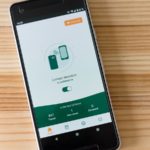 The ability of nations to suppress the spread of COVID-19 has largely been down to the willingness and ability of citizens to engage in actions such as social distancing and mask wearing. New research from the University of Cologne suggests that our perceptions around the severity of the infection are likely to play a huge role in how strictly we adhere to such measures.
The ability of nations to suppress the spread of COVID-19 has largely been down to the willingness and ability of citizens to engage in actions such as social distancing and mask wearing. New research from the University of Cologne suggests that our perceptions around the severity of the infection are likely to play a huge role in how strictly we adhere to such measures.
The researchers examined the various factors that underpin (or undermine) our motivation to socially distance and to use various coronavirus-related apps. Their motivation was to understand why acceptance of these measures was not equal across society.
The study found that as well as the perceived severity of the virus, the rewards for non-compliance also played a part, especially in adherence to social distancing measures. If people feel generally confident that social distancing is both feasible and effective in preventing infections, then their motivation to do so will grow. Peer influence was also found to be high.
“Participants in the study reported higher motivation to maintain physical distance when their trust in the motivation of their fellow human beings to maintain distance was high,” the researchers say. “Solidarity in the fight against the current pandemic therefore seems very important.”
Using mobile health
The adoption of various COVID-related mobile apps was also assessed, including both a contact tracing app and a corona data donation app. The contact tracing app allows users to track contacts with possibly infected people, and also to inform their contacts about their own infection status. The data donation app analyzes data from various smartwatches and fitness wearables to provide the Robert Koch Institute with health and activity data.
The research found that the adoption of these apps was highest for the corona warning app, with less motivation to utilize the data donation app.
“Although both apps do not actively protect against infection, an app with contact tracing at least allows you to check critical contacts you had with infected people,” the researchers say. “On the other hand, individual users do not benefit directly from the corona data donation app because this app aims to analyse the spread of the corona virus on a large scale.”
The willingness to use mobile apps had much in common with our motivation to socially distance. For instance, when people believed they were effective in socially distancing, and that social distancing itself was an effective measure, they were also more likely to use mobile apps. It was also extremely important that users felt that their data would be handled appropriately when using coronavirus apps.
“The greater the trust in official app providers and the lower the concern that the data provided could be misused, the higher was the reported motivation to use both a corona warning app and a corona data donation app,” the researchers explain. “This relationship also applies to people’s willingness to provide their infection status to a corona warning app.”